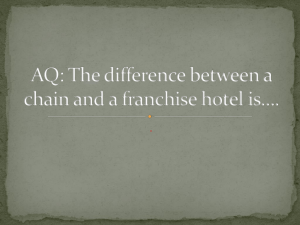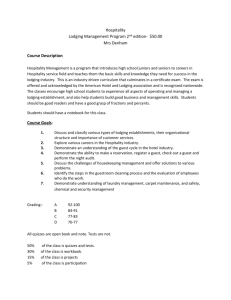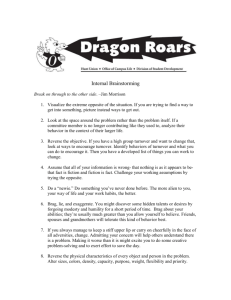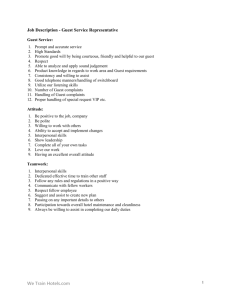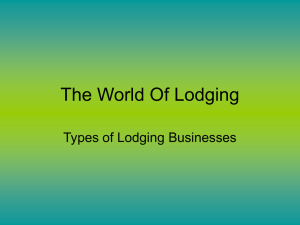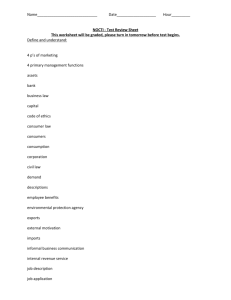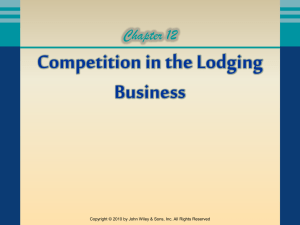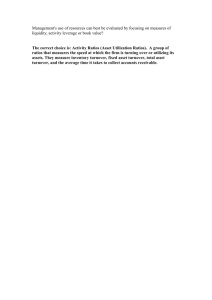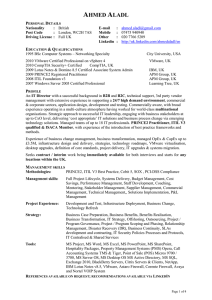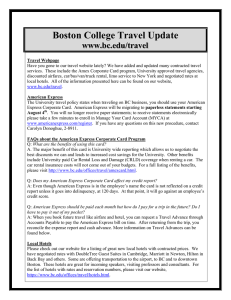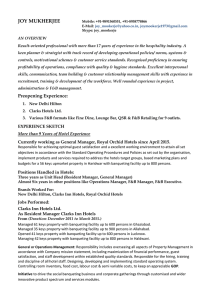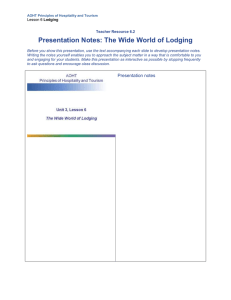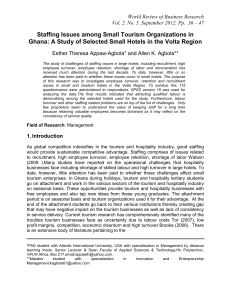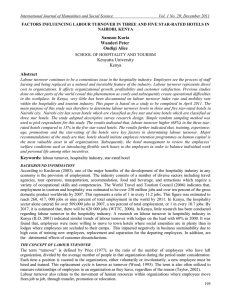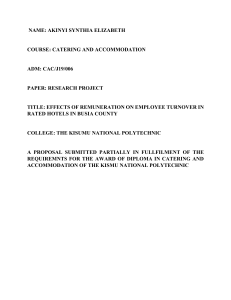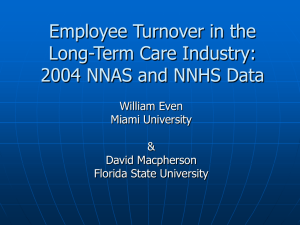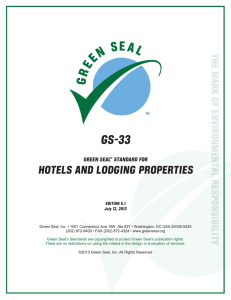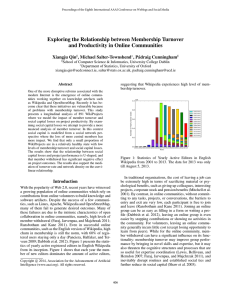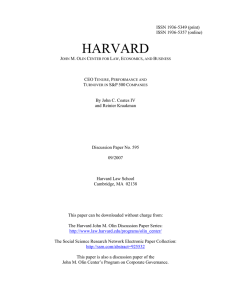Human Resources (HR)
advertisement
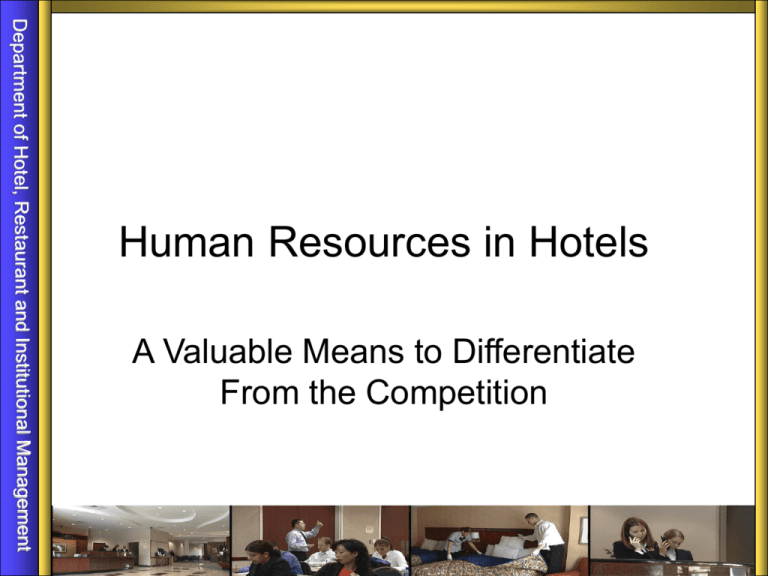
Human Resources in Hotels A Valuable Means to Differentiate From the Competition Contemporary Concerns for HR • The role HR plays in Lodging Operations of the Future • Consequences of Turnover • Complying with Employment Laws • Boosting Employee Productivity HR at the Crossroads • Two likely scenarios for the HR function in hotels: – HR will evolve, adapt, and become more important to lodging organizations. – HR in lodging organizations will be outsourced using outside talent and technology. Alternative 1: HR as a Leader • Organizations must look beyond cost containment to get value from the HR function. – Difficulty with organizational structures is that HR is not viewed as a profit center. – Useful ways to look at HR as a “profit center” • • • • Reduction in employee loss time Reduction in sick days Reduction in Recruiting costs Etc. Can you think of other ways to reduce the costs of managing employees? HR as a Leader • Another way to look at the cost effect of HR other than cost reduction is productivity – Improved employee productivity – Returning guests through employee-guest interactions – Can you think of other ways that employee productivity can be measured? Alternative 2: HR will Disappear • Positive side of this scenario: – Technology provides for a reduction of redundant functions • Employees processing HR information themselves • HR functions moving to a Central Location • Negative Side of this scenario – HR is the enemy – causes operations extra work – HR is inefficient – too many support staff that do not come in contact with the guest – HR is out of touch – they do not understand what it takes to take care of the guest. Current HR professionals in hotels must strive to reduce the negative attributes often associated with the HR function and look for ways to add value to the properties that make up the organization. Traditional Roles of HR • • • • • Recruitment Hiring Training Wages and benefit management Employee performance appraisal HR as an Organizational Leader • Key concerns that HR must consider to become an organizational leader: – – – – – – – – – Employee motivation Jobs as careers Job fatigue Changing role of supervisor Employees in the decision making process Sharing management with other organizational stakeholders Consequences of technology on jobs and organization Cross cultural attitudes Social responsibility of employees and organization Consequences of Turnover • Actual costs incurred by employee separation • Cost of recruiting new employees • Inefficiencies of new employees in training • Disruption of guest service and employee moral • Opportunities for diminished image, lost of customer loyalty etc. Consequences of Turnover • A fine line between tenure and performance – Organizations must constantly review policies and practices to ensure that employees productivity does not diminish as they reach longer periods of tenure. • What are strategies that hotels can undertake to reduce job fatigue and reduced productivity? Calculating Turnover • TO % = Number of new hires / Total number of employees • For example: – 75 employees when fully staffed – 60 new employees hired during the period – = 60/75 or 66.6 % Mentoring • An Important way to enhance: – Productivity – Moral – Retention • Positive effect on both mentor and protégé • Stages of Mentoring – – – – Initiation of the relationship Cultivation of the relationship Separation of the relationship Redefinition of the relationship
